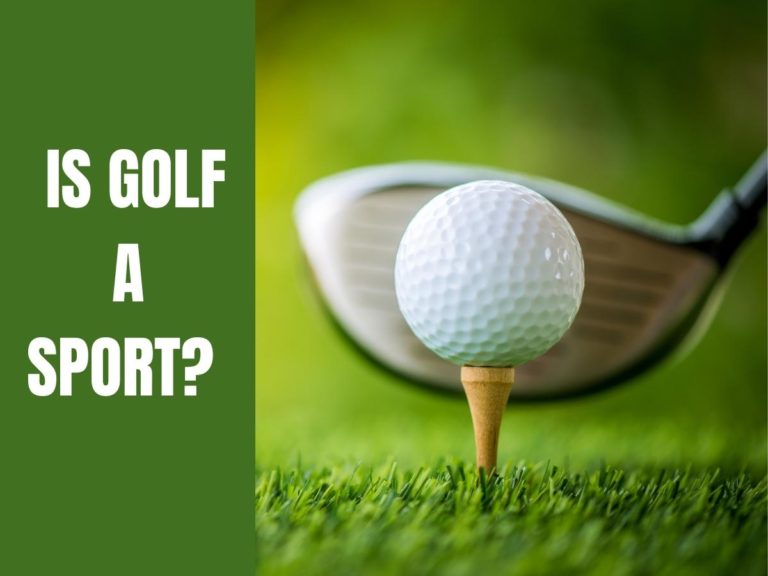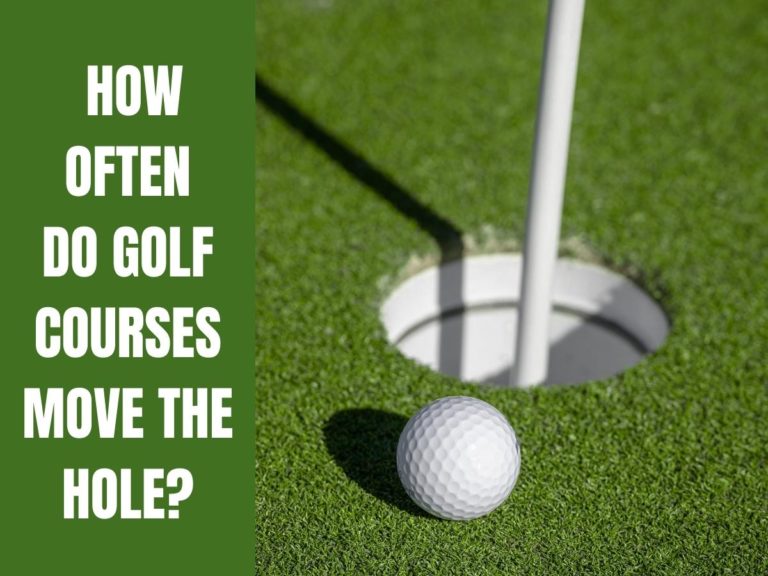Are Golf Clubs Magnetic?
If you’re in the market for a set of golf clubs and are looking for a good deal, you want to ensure the clubs you are buying are genuine. A magnet is a great way of distinguishing a fake titanium driver. But are all golf clubs magnetic?
Some golf clubs are magnetic, and some are not, as it will depend on the material used in the construction of the golf clubhead and shafts. Any golf clubs with steel shafts or iron composite steel clubheads will be magnetic, whereas titanium clubheads would not be.
Most golf clubs are made from either forged or cast steel in various grades, and where you have steel with any iron component, the clubs, whether shafts or heads, will be magnetic.
Having magnetic golf clubs does not affect the performance, and in some cases, you can use a magnet to test whether a golf club is a genuine branded item or a fake. Let’s explore further the topic of whether golf clubs are magnetic.
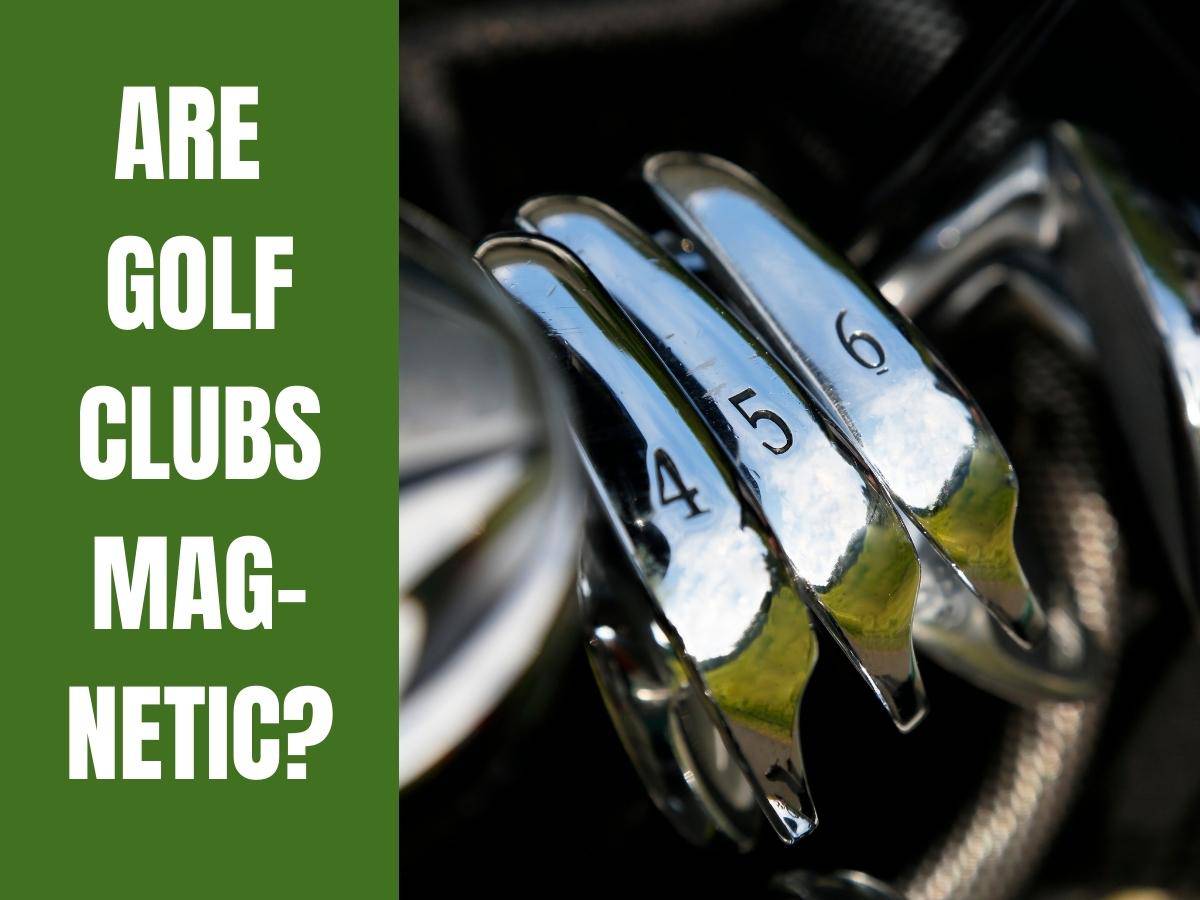
Why Are Golf Clubs Magnetic?
Aside from drivers with titanium heads, most irons, wedges, and putters are made from various types of steel, and whether they are forged or cast, the presence of iron in the steel will make the clubs magnetic.
Stainless steel is created as a mix of iron with nickel and chromium, and so they have the iron composite that makes them react to magnets. Most golf clubs are either 431 or 17-4 stainless steel.
If your magnet is strong enough, it can lift your club off the ground, and there are some products available that you can attach to the butt of your grip that allows you to pick your clubs up off the ground using a magnet.
Golf club shafts can be made from steel, titanium, graphite, or carbon fiber and aside from steel shafts, titanium, graphite, and carbon fiber are not magnetic.
Read more: Are Golf Irons Made of Iron?
Using Magnets To Spot Fake Clubs
One of the most significant issues that brands and manufacturers face today in terms of lost revenue is that of fake products that, without an expert eye, are very difficult, if not impossible, to distinguish from the real thing.
A staggering 15%-20% of products coming out of China are fake, and while you are paying for what you think are real titanium clubs or clubs with titanium shafts, you are getting steel.
Despite security and secrecy surrounding the manufacturing and design of clubs, forgers produce fake clubs and rake in millions of dollars annually through this practice.
When it comes to golf clubs, especially those supposed to be made from titanium, the simple way to test whether it’s real titanium is to hold a magnet to the clubface and see if it sticks.
Titanium doesn’t have iron in it and so if you have bought a titanium driver and arent sure if it’s the genuine article, grab a magnet and do the test. If the magnet sticks to the clubface, your titanium driver is steel dressed up!
If the magnet doesn’t stick or fall to the floor, you have a genuine titanium club, and you can heave a huge relief.
You can do the same test for titanium shafts to ensure that what you bought is, in fact, proper titanium. This almost makes a case for taking a magnet with you if you buy clubs advertised as titanium.
While carbon fiber and graphite are distinctly different from steel in terms of texture, weight, and appearance, if you are buying second-hand clubs advertised with any of these materials as shafts, it may be a good idea to take that Disney magnet with you to be sure.
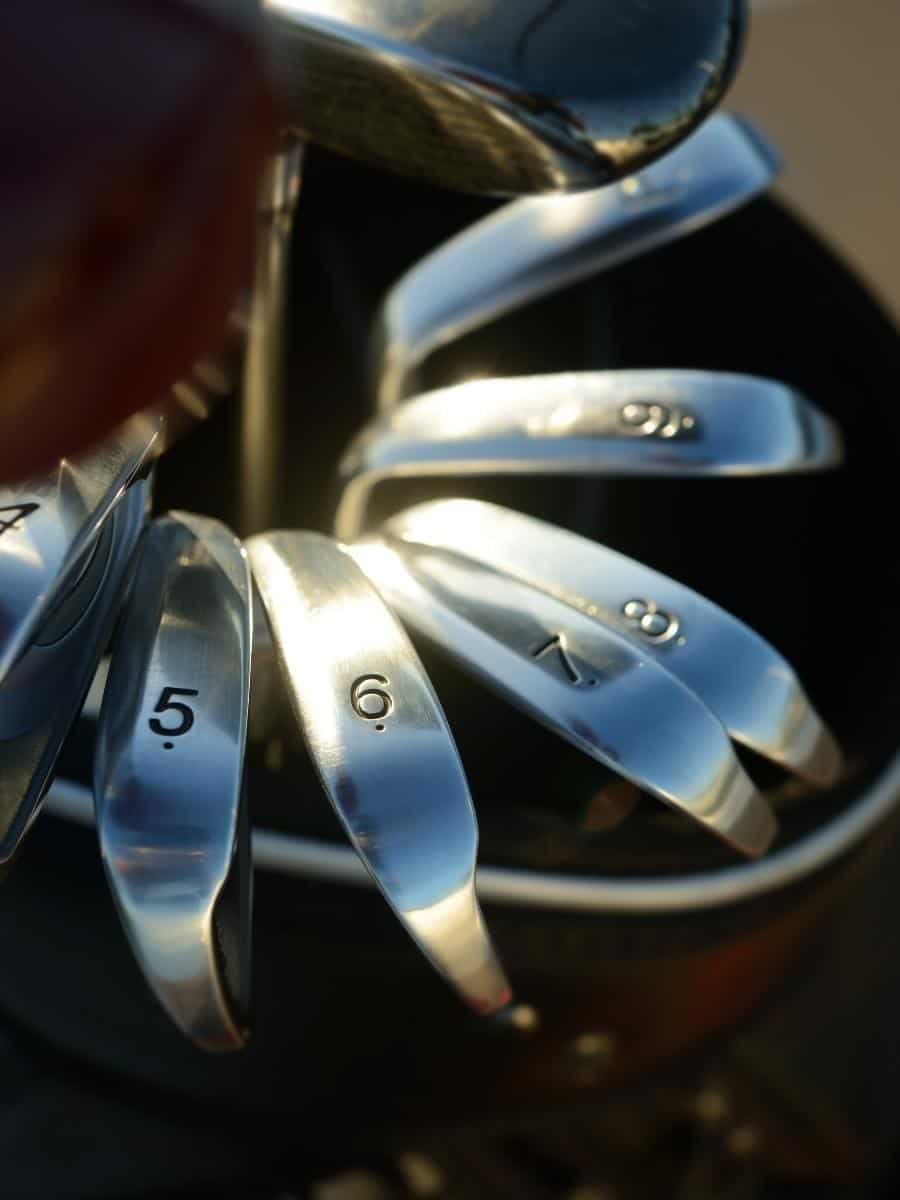
Are Other Materials In Golf Clubs Not Magnetic?
Aside from titanium, aluminum and copper beryllium clubs are not magnetic. If you have a set of Pings that are copper-beryllium, then your magnet shouldn’t stick to them as they have non-magnetic properties.
Some clubs may use aluminum in their construction. In certain places on the club, the magnetic properties are weak or non-existent, indicating a concentration of non-magnetic material.
If you have some of the old persimmon or wooden-headed clubs, unless there are steel parts in the clubface or steel screws, these clubs will not be magnetic, and if those parts are made of copper, they will not exhibit magnetic properties either.
Where Do Magnets Stick To Golf Clubs?
If you want to check what materials your golf clubs are made of, you can have some fun doing it with a magnet. Remember that any part of the club with carbon steel will have a magnetic reaction.
Some clubs only have stainless steel faces, while others may have the whole club made from stainless steel.
Take your magnet, run it over the clubface and shaft, and see where the magnet sticks and doesn’t. The magnet won’t stick with high-end clubs with titanium shafts.
You may also find that your magnet only sticks to the clubface and not the rest of the clubhead, and while this may not prove that your clubhead is made from titanium, it may show that the clubface has far higher iron levels in it than the rest.
Try the same test with your driver and putter and see where you get the strongest magnetic reactions, as this will tell you where the highest concentrations of carbon steel are in the clubface.
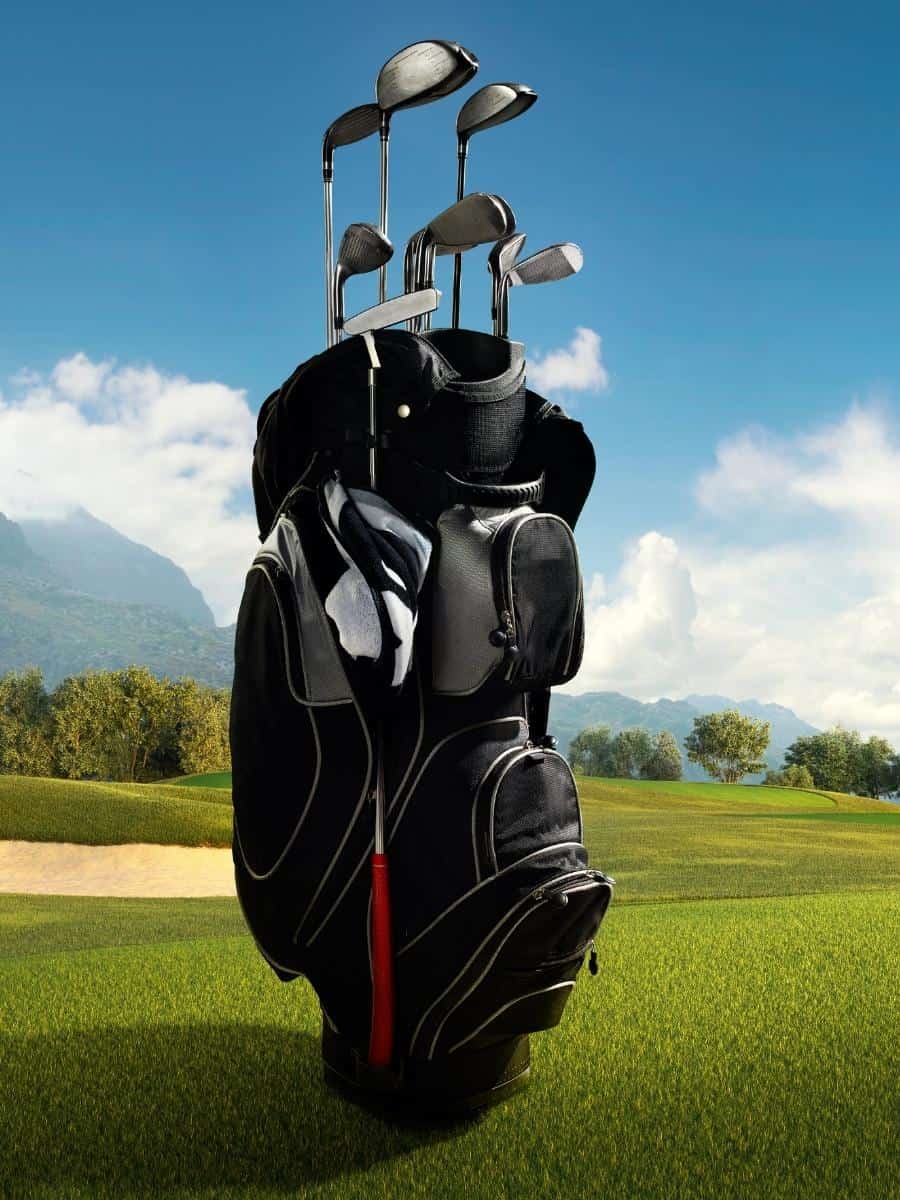
Why Are Golf Clubs Made With Magnetic Steel?
Golf clubs are made with magnetic steel because stainless steel offers the best results in durability, performance, and cost. While cast clubs are cheaper as the steel quality and manufacturing processes are cheaper, cast and forged stainless steel irons offer the optimum player performance regardless of skill level.
As for drivers, using titanium allows the clubs to have larger sweet spots and deliver more speed off the clubface as titanium has more ‘spring’ than stainless. Using it makes the drivers that much lighter to swing and generates more clubhead speed.
Final Thoughts
When answering the question, “are golf clubs magnetic?” most golf clubs that have stainless steel are magnetic, while most new drivers using titanium are not. This is likely to remain the status quo for some time as making irons from titanium is just too expensive.
Nonetheless, whether your clubs are or aren’t magnetic will not affect your swing or ball striking one way or the other, but at least you know how to check whether the club you’re buying is genuine, and it won’t cost you a thing to verify.
Related Posts You May Like:




